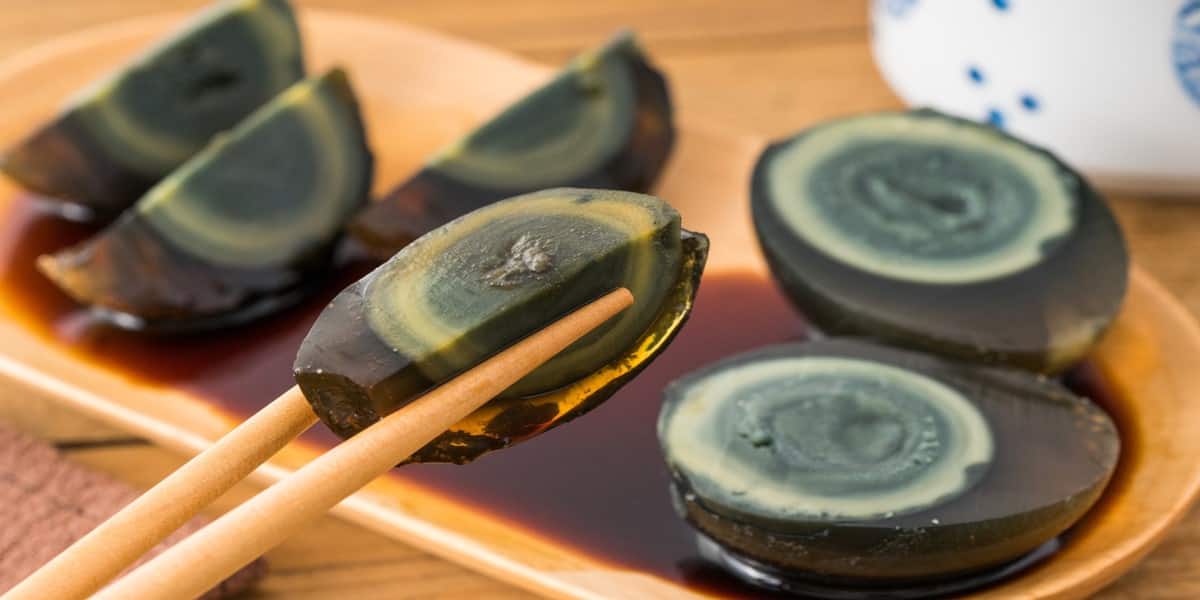Century Eggs
Doodlebrary
- Century eggs, also known as preserved eggs, hundred-year eggs, or thousand-year eggs, are a Chinese delicacy that has a unique and distinct flavor and appearance.
- Despite their name, century eggs are not actually aged for a hundred or a thousand years; the name is a misnomer.
- Century eggs are typically made by preserving duck, chicken, or quail eggs in a mixture of clay, ash, salt, quicklime, and rice straw for several weeks to several months.
- During this preservation process, chemical reactions occur that transform the egg’s texture, flavor, and color.
- The resulting century egg has several distinctive features:
- Appearance: The egg white turns translucent and takes on a jelly-like consistency. The yolk becomes dark green or grayish in color with a creamy, custard-like texture. The eggshell may develop a dark, earthy hue.
- Flavor: Century eggs have a strong and pungent aroma due to the chemical changes that occur during the preservation process. The flavor is often described as savory, salty, and slightly ammonia-like. It can be an acquired taste for some people.
- Usage: Century eggs are commonly used in Chinese cuisine as a condiment or ingredient. They are often sliced and served as a topping for congee (rice porridge), added to salads, or used in various dishes for their unique flavor and texture.
- Health considerations: Century eggs are safe to eat when properly prepared and stored. The alkali and salt used in the preservation process help inhibit the growth of harmful bacteria. However, like many foods, they should be consumed in moderation due to their high sodium content.
- Century eggs are an acquired taste, and not everyone enjoys their strong flavor and unique texture.
- Some people find them to be an interesting and delicious addition to certain dishes, while others may find them off-putting.
- If you’re curious about century eggs, it’s worth giving them a try to see if they suit your palate.
